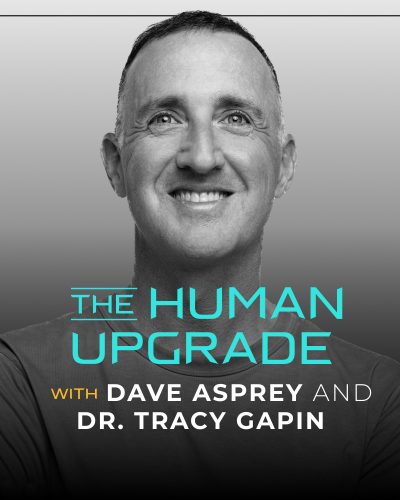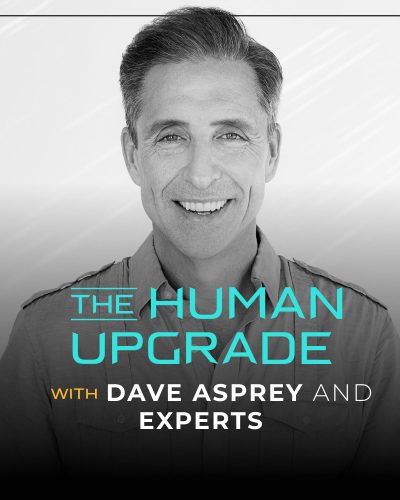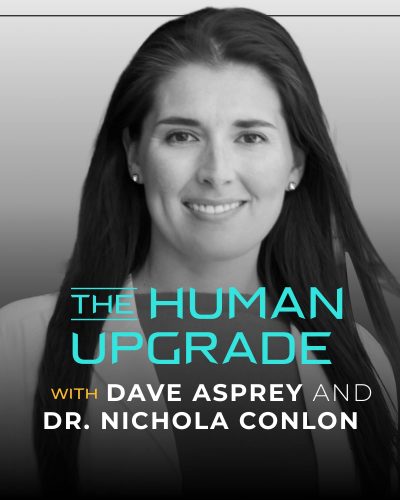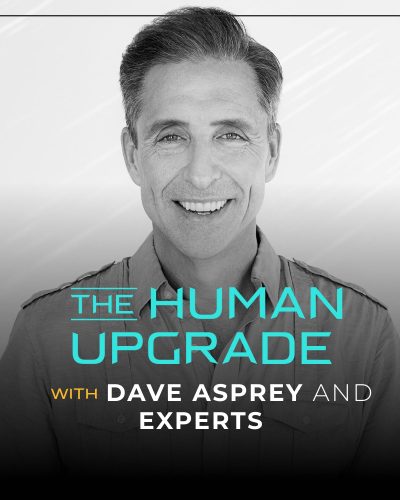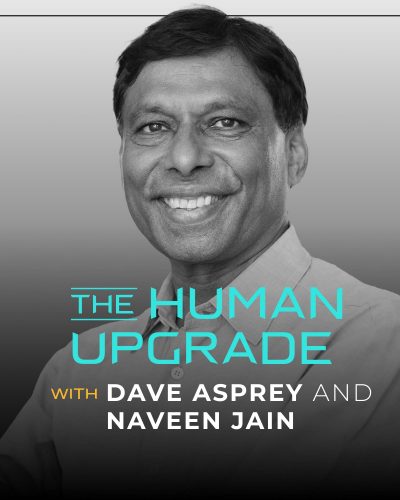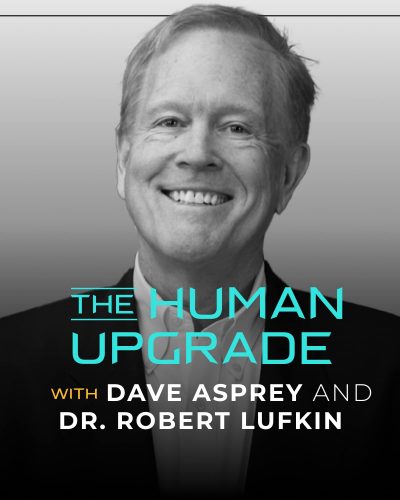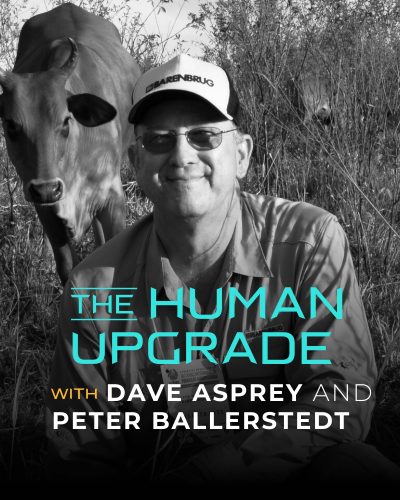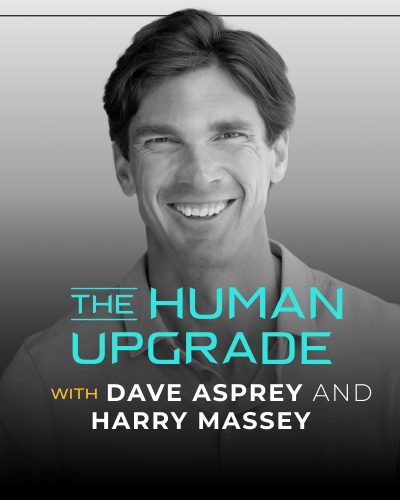In this Episode of The Human Upgrade™...
…you’re going to find out why you’re missing 50% of your life to fractured attention and distraction and what it’s doing to your brain.
Podcast guest Amishi Jha, Ph.D., a neuroscientist and professor of psychology at the University of Miami, researches how people pay attention. She co-founded the Contemplative Neuroscience for the Mindfulness Research and Practice Initiative at the University of Miami and serves as its director. For more than 25 years, she’s researched the science of attention through intensive work with the U.S. Military, first responders, medical professionals, business leaders, and elite sports teams.
She’s found that attention Is both your superpower and your kryptonite.
As a superpower, attention allows you to time-travel in your mind (future and past), highlights what’s important, helps you problem solve, and shuts out distractions, she explains in her book, “Peak Mind: Find Your Focus, Own your Attention, Invest 12 Minutes a Day.”
When attention is compromised, it’s your kryptonite because it impacts your cognitive function, social engagement, and emotional balance, she points out. The three main forces that degrade attention include, 1) the amount of stress you’re under (and how you’re managing it); 2) being in a crappy mood; and 3) threats real or imagined.
And when your attention gets fractured, you often default to tactics that fail to pull it back together. Amishi’s got great insights in her book that allow you to understand why this happening. Knowing what’s going on makes it easier to find your focus. For example:
- Load Theory: Attention isn’t a gas tank that runs out. The amount you have remains the same—it just gets used differently, and not always in the way you want.
- The Vigilance Decrement: Your performance decreases over time not because your brain gets tired, but because your mind wanders more. (More on mind wandering in this episode!)
"One of the brain systems that is most capable of altering, biasing and recalibrating brain function is attention."
Amishi Jha, Ph.D.
It’s absolutely possible to change your brain to become more attentive, present and productive through mindful techniques and daily focusing practices.
Amishi’s research shows that mindfulness gives you a sense of control over your mind and allows you to stop negative thinking before it hijacks your brain and body.
The type of mindfulness practice you choose isn’t as important as how consistently you actually do it. The minimum effective dose equals 12 minutes a day, five days a week.
“The intention for these practices is not to achieve a special state,” Amishi says. “That is not what we’re intending to do. So, if you go in thinking, “Okay, I’m going to be blissed out in five minutes if I start practicing,” or, “I’m going to feel better,” or, “I’m going to be X, Y, or Z…” Going in with that expectation may actually not allow the emergence of what we’re really trying to cultivate, which is more awareness of what’s going on in this moment.”
Listen on to a conversation that gives you practical tips on how to re-capture your attention, train your brain and perform at your peak.
More about Amishi Jha, Ph.D.: Amishi earned a Bachelor of Science degree in Biological Psychology then went on to earn a Ph.D. in Psychology (Cognitive Neuroscience) from the University of California–Davis. She completed post-doctoral training at the Brain Imaging and Analysis Center at Duke University in functional neuroimaging. She’s earned grants from the U.S. Department of Defense and private foundations. She leads research on the neural bases of attention and the effects of mindfulness-based training programs on cognition, emotion, resilience, and performance. Her work has been featured at NATO, the World Economic Forum, and the U.S. Pentagon.
Enjoy the show!
LISTEN: “Follow” or “subscribe” to The Human Upgrade™ with Dave Asprey on your favorite podcast platform.
REVIEW: Go to Apple Podcasts at daveasprey.com/apple and leave a (hopefully) 5-star rating and a creative review.
FEEDBACK: Got a comment, idea or question for the podcast? Submit via this form!
SOCIAL: Follow @thehumanupgradepodcast on Instagram and Facebook.
JOIN: Learn directly from Dave Asprey alongside others in a membership group: ourupgradecollective.com.
- Our Partners
- Links & Resources
- Key Notes
Trigger Autophagy:
https://spermidinelife.us/dave, use code DAVE25 for 25% off your first month’s order
Meat Sticks! All the Good Stuff-No BS:
https://paleovalley.com/DAVE, use code DAVE to get 15% off your first order
Sleep Better on Natural Memory Foam:
https://myessentia.com, use code DAVEVIP to get an exclusive discount
Website: https://amishi.com
Book: “Peak Mind: Find Your Focus, Own your Attention, Invest 12 Minutes a Day”
Instagram: instagram.com/amishipjha/
Twitter: twitter.com/amishijha
Facebook: facebook.com/amishi.jha
YouTube: youtube.com/user/AmishiPJha/featured
The Jha Lab: lab.amishi.com
TEDxCoconutGrove: How to tame your wandering mind
Previously on Bulletproof Radio:
- Neuroscientists can study all sorts of stuff like amygdalas and whatever else is… Why was attention the thing that you chose to zoom in on? – 2:37
- We are at a global pain point as it relates to our attention, and people are looking for solutions. – 7:30
- Can you talk about working memory and just define what it is for our listeners? Because you’re measuring the effects of what happens to us on our working memory. – 10:53
- Working memory, especially things like the dual n-back, you get a very strong sense of the ick quick, and then you got to keep going. – 13:16
- I want the reframe to be is the moment that you realize your flashlight is not on the thing you want it to be on, that’s a win. That’s not a failure. That’s actually a point of power, because now when you know where your attention is. – 18:14
- So what is the role of sitting being bored, or just being silent in turning on your attention or turning on a peak mind? – 23:55
- What we really think about when it comes to brain systems of attention is their integrated dynamic functioning. So how are you passing off the baton from one to another in a useful way? – 32:17
- Most of us have the phone in the hand, we’re on the app, and we’ve already been scrolling before we have any idea what we’re doing. It’s so habitual. – 39:06
- What are the three kryptonites for attention? – 47:56
- We found that we could protect against declining attention when we offered mindfulness training programs. – 52:53
- So is there something besides gratitude or forgiveness that’ll take you out of a mood? – 54:02
- So I just want to call for listeners. If your mindfulness isn’t working, maybe there’s a different way to do it. – 01:-3:44




